[바른의료연구소]세계보건기구(WHO) 사무총장에게 고어사 한국 철수 관련하여 서안 발송
첨부파일
-
- 첨부파일: 바른의학연구소.jpg (19.5K)991
짧은주소
본문
[바른의료연구소]세계보건기구(WHO) 사무총장에게 고어사 한국 철수 관련하여 서안 발송
소아용 인공혈관을 공급하던 고어사의 철수는 독과점 기업의 횡포가 아니라 저수가를 강제하는 대한민국 정부의 횡포가 원인이라는 사실을 알리는 서한을 WHO에 발송하였다.
지난 달 미국 고어사가 독점 공급하던 소아심장수술에 사용하는 인공혈관의 재고가 바닥나면서, 폰탄 수술로 알려진 소아 심장수술이 중단되는 위기에 놓였다. 이로 인해 국내에서는 이 문제가 큰 이슈가 되었다. 당시 보건복지부 박능후 장관은 이번 사태를 다국적 의료회사의 독과점 횡포로 규정하고, 고어사를 비윤리적 기업으로 맹비난 했으며, 이 문제를 오는 5월에 열릴 WHO(세계보건기구) 총회에 정식 아젠다로 상정하여 논의할 것이라고 밝혔다. 하지만 이후 발표되는 여러 사실들과 증거들을 종합해 보았을 때, 수술 중단 사태의 본질은 독과점 기업의 횡포가 아니라 대한민국 정부의 횡포가 원인이었다는 점이 드러났다.
2016년 당시 고어사가 공급하던 인공혈관의 국내 수가는 미국 수가의 반 정도였고, 중국의 1/3 수준에 불과했다. 그런데도 정부는 그 가격에서 19%를 삭감하겠다고 통보했다. 그리고 3년 주기로 시행하는 GMP(Good Manufacturing Practice) 실사에서 정부는 기업의 기밀에 해당하는 자료까지도 무리하게 요구했다는 사실이 밝혀졌다. 결국 이러한 저수가 강제와 과도한 규제를 견디지 못한 고어사는 2017년 2월 철수를 결정하였다.
당시 고어사가 철수하자 흉부외과학회를 비롯한 의료계에서는 우려를 표명하고, 수술 중단 사태가 벌어질 수 있음을 경고하면서 정부에 대책을 촉구하였다. 그러나 정부는 2년 동안 아무런 대책을 마련하지 않았다. 오히려 최근 고어사와 대화를 하려고 했으나 고어사가 거부했다고 언론에 이야기 하였다. 그러나 고어사가 2년 동안 대한민국 정부에서 그 어떠한 요청도 받은 적이 없다는 사실을 밝힘으로써 거짓말이 탄로나 웃음거리만 되었다. 이렇게 거짓말로 상황만 모면해 보려는 정부의 행태에 의료계와 국민들은 실망을 금할 수 없었고, 이런 상황에서 문제의 본질을 덮고 WHO에 가서 독과점 기업의 횡포를 막기 위해 논의하겠다는 뻔뻔함과 무지함에 황당하기까지 하였다.
바른의료연구소(이하 본 연구소)는 이번 고어사의 철수로 인한 수술 중단 사태의 본질을 WHO에 제대로 알려야 한다고 판단하여, 3월 19일 WHO 사무총장에게 서한을 발송하였다. 이 서한을 통해서 수술 중단 사태의 근본적인 책임은 저수가와 과도한 규제로 의료산업 및 의료시스템을 억누르고 있는 대한민국 정부에 있음을, 그리고 정부의 이러한 횡포로 인해 대한민국 국민들의 건강과 의료계 종사자들의 생존권이 위협받고 있음을 적극적으로 알리려 한다. 아래는 본 연구소가 WHO에 보낸 서한 전문이다.
2019년 3월 19일
바 른 의 료 연 구 소
1. 바른의료연구소가 세계보건기구(WHO) 사무총장에게 보낸 서신
Dear Dr Adhanom Ghebreyesus, Director-General of the World Health Organization (WHO)
I, on behalf of the Barun Medicine Institute, would like to appreciate your overall effort, as the Director-General of the WHO, to promote health, keep the world safe, and serve the vulnerable.
As you may or may not have been made aware, an unfortunate crisis is unfolding in South Korea. Pediatric vascular grafts, which are indispensable devices for correcting congenital cardiac abnormalities, are nearly depleted in our country, resulting in indefinite postponement of such procedures. In response, the S. Korean Minister of Health and Welfare, Park Neung-Hoo, announced recently that this crisis was solely attributable to the monopoly and tyranny of Gore-Tex, a multinational medical device company based in the U.S., which manufactures and distributes vascular grafts. The S. Korean Minister further stated he would call for this issue to be discussed as official agendum at WHO World Health Assembly to be held in May.
The S. Korean medical community, however, has a differing opinion on the root cause of this crisis. Gore-Tex withdrew its operation from S. Korea, only after S. Korea unilaterally lowered reimbursement rates for vascular grafts, and imposed on the manufacturer a burdensome regulatory policy for quality control known as Korean Good Manufacturing Practice (KGMP). KGMP applies to all high-risk medical devices, both foreign and domestic; what is unusual about KGMP, however, is its reimbursement policies.
Even before 2017, which was when Gore-Tex decided to pull out of S. Korea, its reimbursement rate for vascular graft was set far lower than in other countries. S. Korea was paying $420 for each, whereas People's Republic of China was paying $1,330 and the U.S. $745. That is, S. Korea was paying less than one third of the price China was paying and a little more than a half of what the U.S. paying the manufacturer.
Even more puzzling was that the S. Korean government was still not happy with such deeply discounted price. In 2016, the government informed Gore-Tex unilaterally that it would pay even less -- 19% less -- for vascular graft. Furthermore, using the inspection clause in KGMP, it demanded Gore-Tex submit all of its operational documents relevant to S. Korea, including confidential information. In February of 2017, Gore-Tex announced its withdrawal from S. Korean market and closed its operation permanently.
Immediately thereafter, cardiovascular surgeons and other doctors in S. Korea pleaded with their government to come up with an alternate plan for procuring vascular grafts, while warning of the dire consequences once the existing supplies run out. Unfortunately, the government had not taken any action on these requests over the last 2 years (and the existing supplies did run out).
The most egregious of all, however, happened just recently. The S. Korean government, through its press release, stated that its officials had been negotiating with Gore-Tex over the last 2 years. Gore-Tex denies this report. In other words, the S. Korean government attempted to cover up its ineptitude with an inept lie on its press release. Of course, it was the same ineptitude that has led to the present crisis clearly foreseen and forewarned by the surgeons and other doctors 2 years ago. The government did contact Gore-Tex but only recently -- only after the crisis has become clear and present.
As can be clearly seen, the monopoly and tyranny never resided with the multinational U.S. manufacturer. Instead, the monopoly and tyranny were (and have always been) the two defining attributes of the S. Korean government's regulation of its medical industry. With excessive and whimsical regulations, the S. Korean government has long oppressed the country's physicians, drug companies, and medical device companies, even at the point of harming patients as this current crisis amply demonstrates. In fact, there have been numerous such patients denied of needed procedures and medications; those patients were simply not as well publicized.
In this current environment, it is not just foreign companies who decide the risk is not worth the reward. As the table below shows, many S. Korean doctors are struggling to keep their clinics open, with an increasing number of them having to declare bankruptcy. This, of course, further limits access for patients, thereby demoting (rather than promoting) general health of the nation.
Ultimately, this is the grounds on which we stand and write this letter to you, Director-General of WHO, the regulatory body of its member nations. We would like to make you aware that such ill-conceived policies of excessive regulation and low reimbursement in S. Korea's medical industry have resulted in actual harm of its people. Again, its Minister of Health will attempt to discuss as an official agendum the monopoly and tyranny of multinational medical device manufacturers. Again, in the eyes of countless citizens of S. Korea, the monopoly and tyranny have always resided with the S. Korean government itself, with its excessive regulations of and low reimbursement for doctors, drug companies, and medical device companies. That shall be adopted as an official agendum to be discussed at WHO World Health Assembly in May, we respectfully request.
With best regards,
Director of the Barun Medicine Institute
Seong Won Kim. M.D., M.P.H.














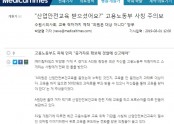


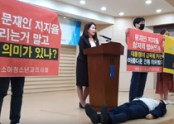
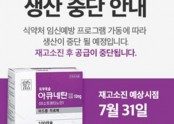
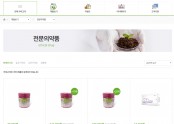
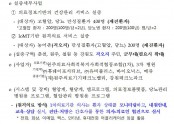

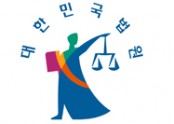
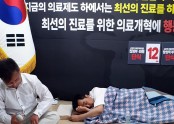
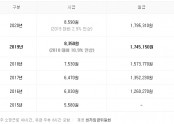
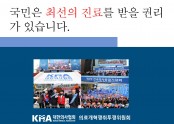
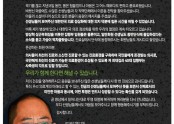
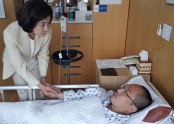
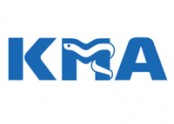

댓글목록
등록된 댓글이 없습니다.